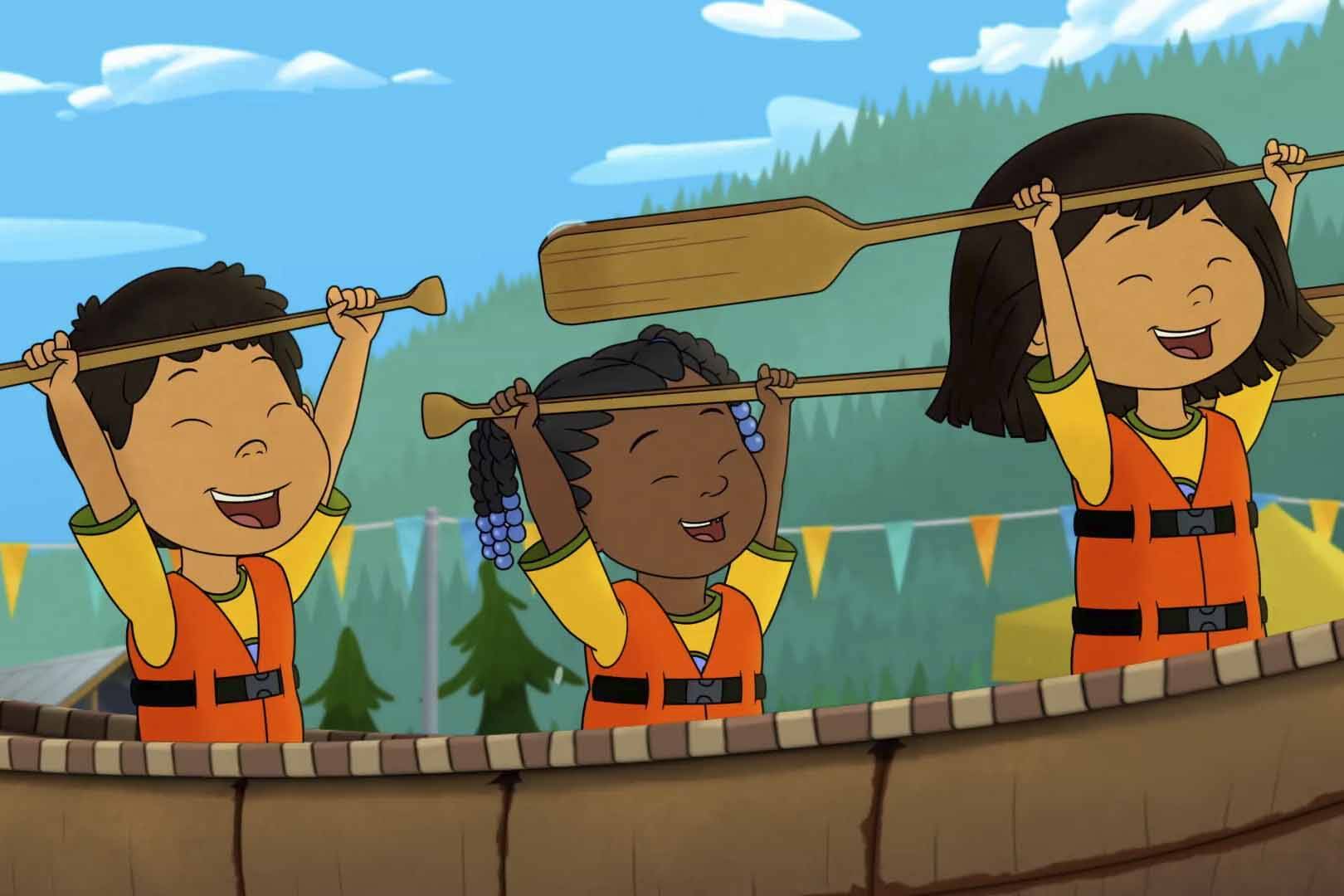Vera Starbard remembers the phone call earlier this month that brought the news “Molly of Denali” had received two Emmy nominations, and that Starbard, who has worked on the PBS Kids’ show since 2017, was among the people listed for her contribution to the show.
“I almost hung up on her — I was so surprised, but then of course I started to cry,” Starbard said, laughing.
Starbard, who is Tlingit and Dena’ina Athabascan, was nominated alongside a handful of other writers including Juneau resident and Tlingit playwright Frank Henry Kaash Katasse and University of Alaska Southeast Professor X’unei Lance Twitchell, who is Tlingit, who are set to head to Los Angeles on Dec. 10 to attend the Children’s & Family Emmy Awards for show’s two nominations: Outstanding Preschool Animated Series and Outstanding Writing for a Preschool Animated Program nominations for their contribution to the show.
The show “Molly of Denali” is the first nationally distributed children’s show in the U.S. to feature an Alaska Native lead character.
“It’s a huge moment for Alaska Native people, it’s a huge moment for Tlingit people,” Starbard said. “I think this shows what Alaska Native people already know, which is that Alaska Native artists are brilliant and creative and unique.”
Starbard, born in Craig, is known across Alaska both for her work on “Molly of Denali,” along with contributing to ABC’s “Alaska Daily,” but in Juneau, many might recognize her from her plays brought to life on the Perseverance Theatre stage.
Starbard said the Emmy nomination is a major step toward gaining more recognition within the entertainment industry for Alaska Native people and people of color who deserve more appreciation for the “amazing” work that they have done and continue to do.
Starbard said growing up as a young Alaska Native girl in a rural Alaska community, she never saw herself represented when she turned on the TV. Now, thanks to her work and the work of the hundreds of other Indigenous people who contributed to the show, she said she is grateful to know that both her young nephew and other Alaska Native children will never have to experience that sense of disconnect.
“There are no more generations coming after me that will not have an Alaska Native character to look to, to identify with,” she said. “My nephew will always have someone to show him that he’s important too.”
Katasse, who was born in Petersburg but grew up in South Douglas at the end of 4th street, said the reality of the nominations and his name being on the list is still setting in him.
“It was super surprising, but I think it’s well deserved by everyone,” he said.
Katasse said he hopes the recognition the show has received opens the door for more Indigenous-based shows to become the norm so that more Indigenous people can start to see stories and characters that they can relate to.
Katasse said being a part of the show has been a great experience for him and applauded its emphasis on bringing in more Indigenous writers and artists to contribute to the show.
“It’s been a really beautiful process,” he said. “It’s amazing that a small town like Juneau can put out three people in a writing room that can get nominated for an Emmy, I think that it’s something really special.”
Twitchell, UAS professor of Alaska Native Languages, also remarked on being included in the list for the nominations, and said knowing that his young children will be able to see someone like themselves represented in the media has been an “amazing experience” for him, and working on the show has been both challenging and rewarding for him as a writer.
“They get to see a reflection of themselves in the media, which is so important,” he said. “It’s a dream, it’s wonderful to go down this road as a creative writer, as a screenwriter, as a playwright and go work with not only incredibly talented but fun people to be around as well.”
Twitchell said for many years, Juneau has taken great steps to bring more Indigenous voices into the arts, and he hopes young Alaska Native and other Indigenous people see the work being done in the media and arts and know that it is possible for them to find success in those platforms.
“We need more Native written content, not just content written about Natives,” Twitchell said. “We want young native people to know that this is something you can do — you can become a storyteller at this level, you can do these things.”
• Contact reporter Clarise Larson at clarise.larson@juneauempire.com or (651)-528-1807.

